The "Robinson" guys on Hua Na lake
(Baonghean.vn) - Winter has crept into the forest of Que Phong (Nghe An). You can feel the cold air more clearly when turning near Sao Va waterfall to enter Dong Van commune, to Hua Na hydroelectric reservoir - where there are "Robinson boys" with interesting stories.
Exploring a deserted island
Hua Na is the second largest hydroelectric reservoir in Nghe An and there was also a migration of more than 1,400 households due to the impact of the reservoir. We visited Dong Van on the days when people here were racing against time to move their belongings and houses to their new home in early 2012.
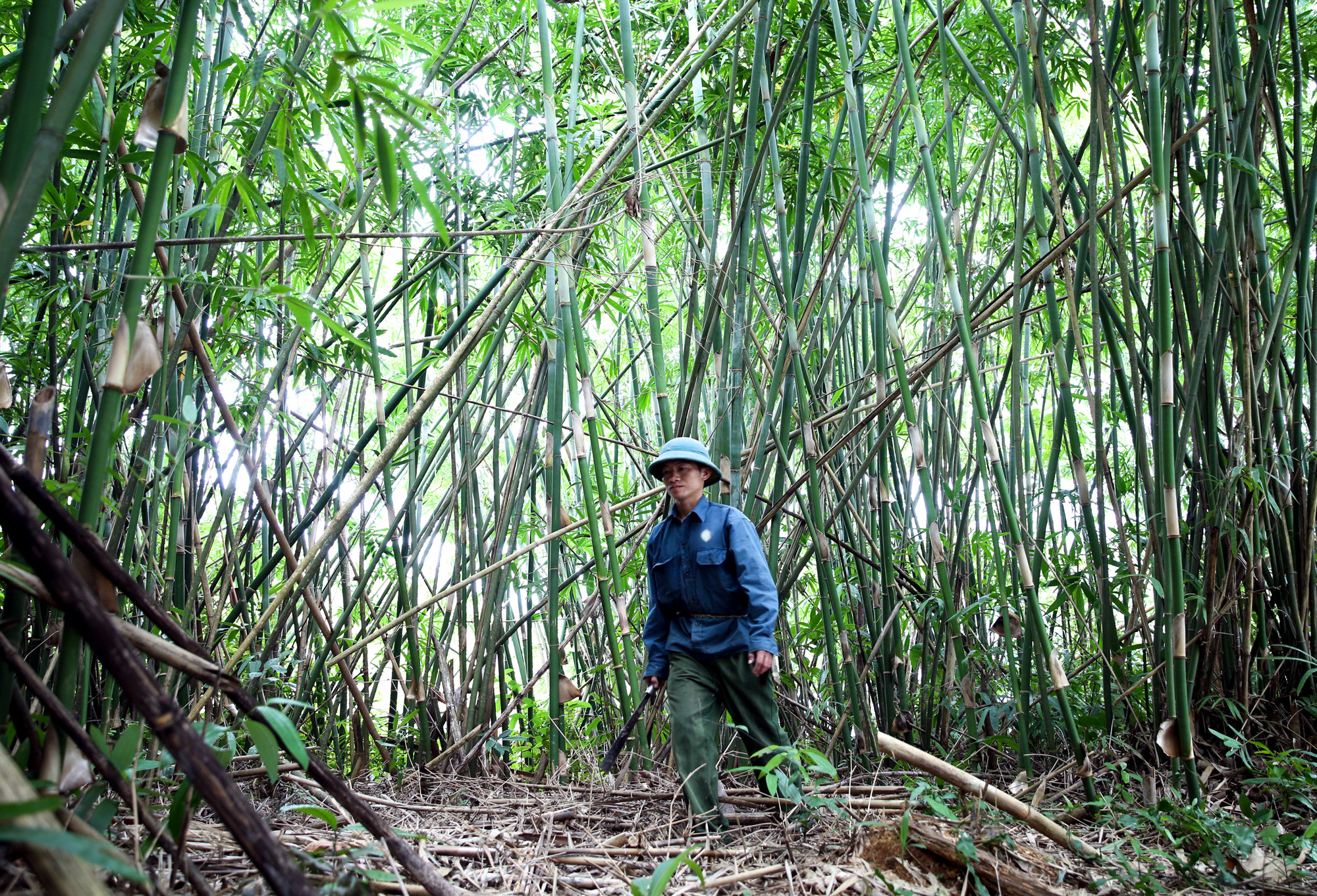 |
| For over a year now, Lang Van Mao has been single-handedly exploring a deserted island in the middle of Hua Na Lake. Photo: Ho Phuong |
After 6 years, most of the people have stabilized their lives. They do not have to go to a far away place like the people in Ban Ve lake area (Tuong Duong district). We stopped at Pieng Van village, a Thai community next to Hua Na hydroelectric lake.
Looking down from the highway, the lake surface seemed to be calm. A picture of a quiet mountain forest where time seemed to have stopped.
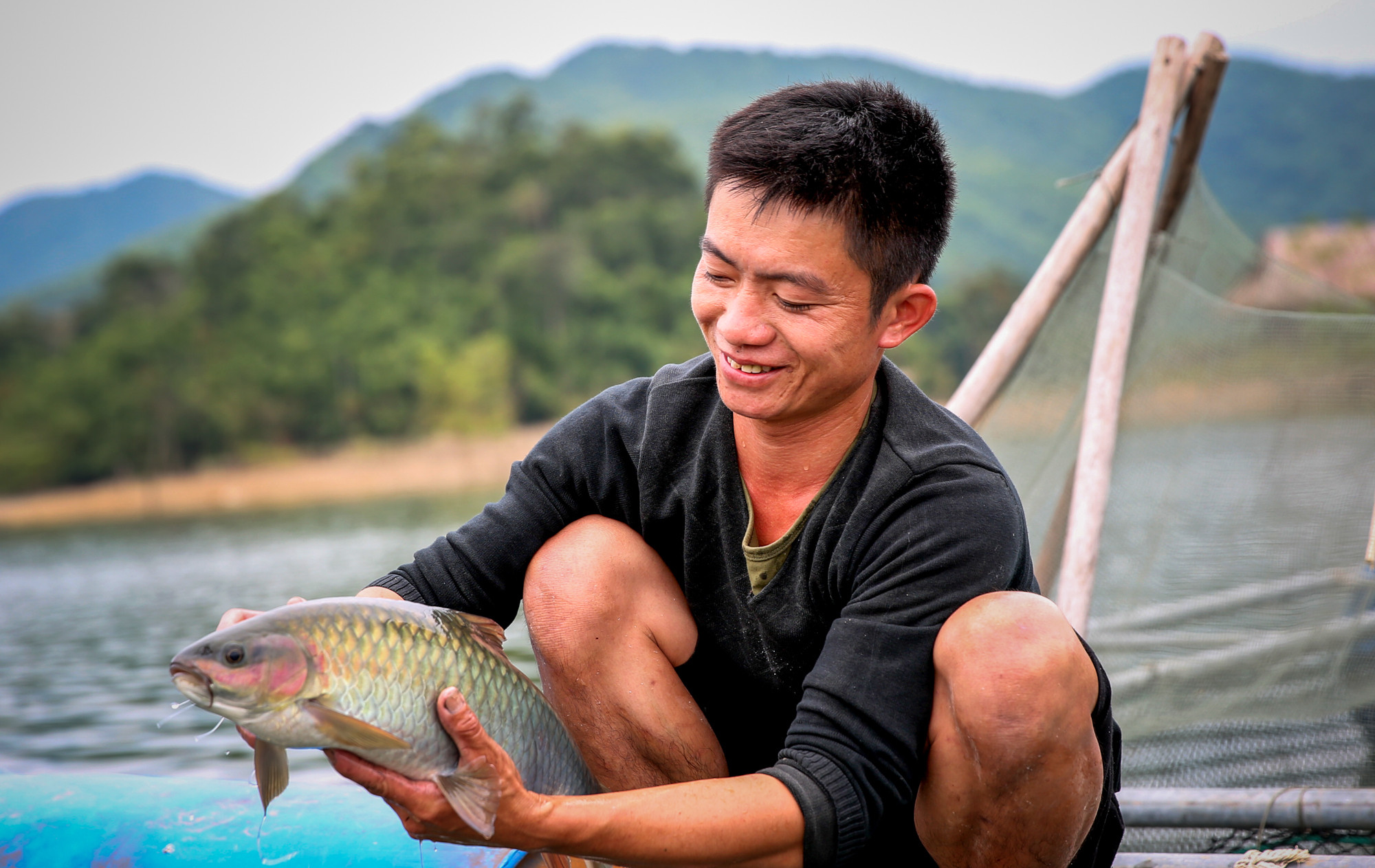 |
| Over the years, many people have come to learn about the determination and economic methods of the young man Lang Van Mao. Photo: TL |
Lang Van Mao, a 31-year-old man from Pieng Van village, walked briskly up the slope, on the path leading down to the lake. His small stature and the quick steps of a hunter, Mao was standing in front of us in a flash. I learned about Lang Van Mao through a recent online article. That article compared him to the literary character Robinson Crusoe by the 17th-century English writer Daniel Defoe.
Mao is a young Thai man who is quite active in communication. He showed me a green area in front of him, about a kilometer from the lake shore. That was the island of “Robinson”. We got to the island quite easily by motorboat. On the island there was a wooden stilt house with a thatched roof. He lived there with his wife and 2-year-old daughter.
However, if compared, Mao and his family's life seems more similar to the William family in the famous novel "Growing Up on a Deserted Island" by Johann Wyss than Robinson who was alone for a long time on a deserted island in the middle of the ocean.
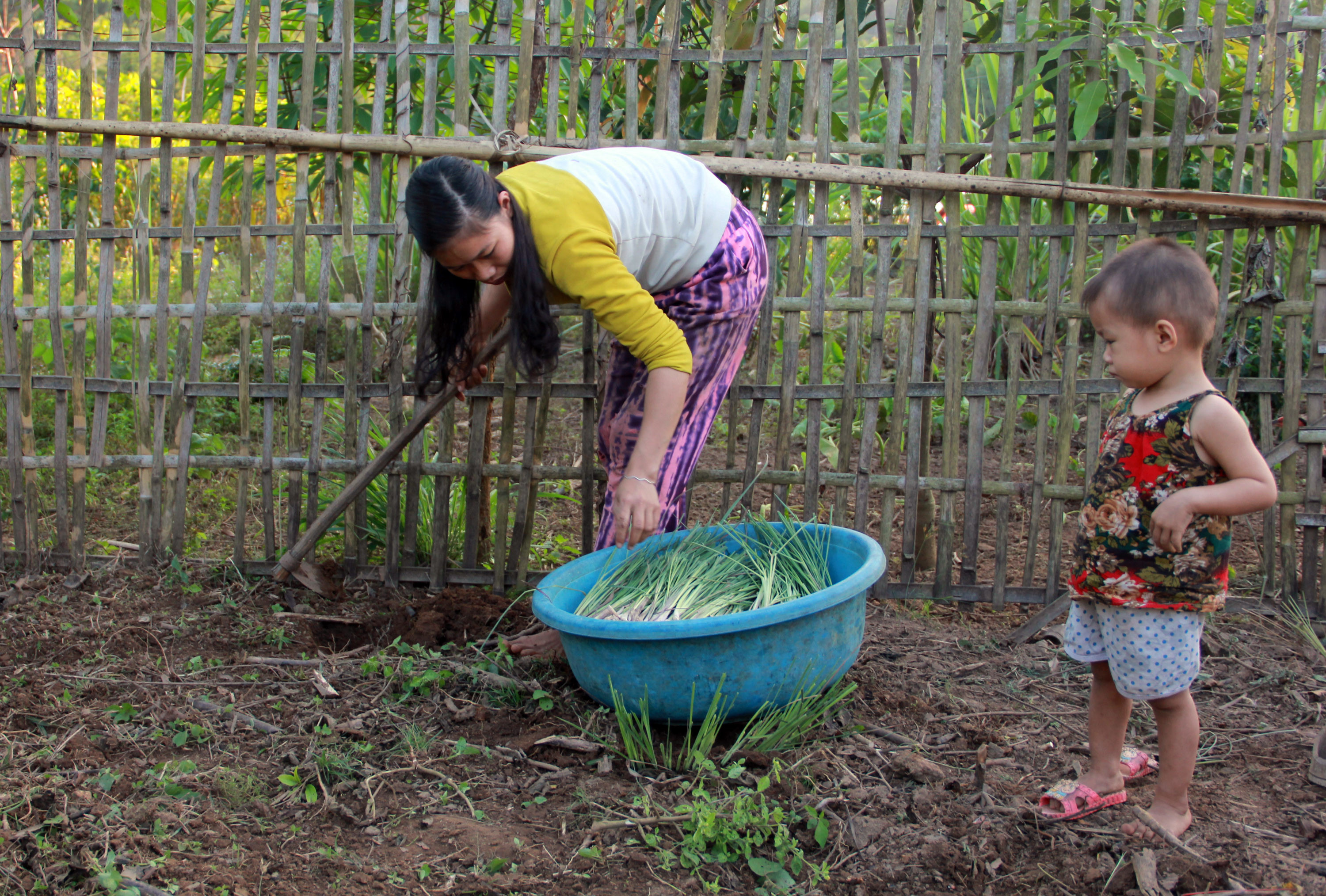 |
| Ms. Vi Thi Tuat, Lang Van Mao's wife, is a rare woman living on a deserted island. She brought her 2-year-old daughter along to help her husband explore this place. Photo: Huu Vi |
The boat docked and we realized that the lifestyle of the owner of the stilt house on the island was no different from that of the Thai households in the nearby Pieng Van village. Under the stilt house, chickens were roaming around looking for food. Around the house, the owner planted vegetables and native plants. That day’s meal was not only with Mao’s family but also with other young friends. They were also the ones who explored the deserted island like Lang Van Mao.
Through the story during lunch, Mao told about the process of coming to the deserted island. He had considered a military career, but his family's conditions did not allow him to stay in the military environment for a long time. Then he returned to fishing in the lake to sell to traders. At first, the small island of only a few hectares was where he chose to live and store fishing gear. Later, realizing that this place could "do more work", he decided to build a hut to make a farm.
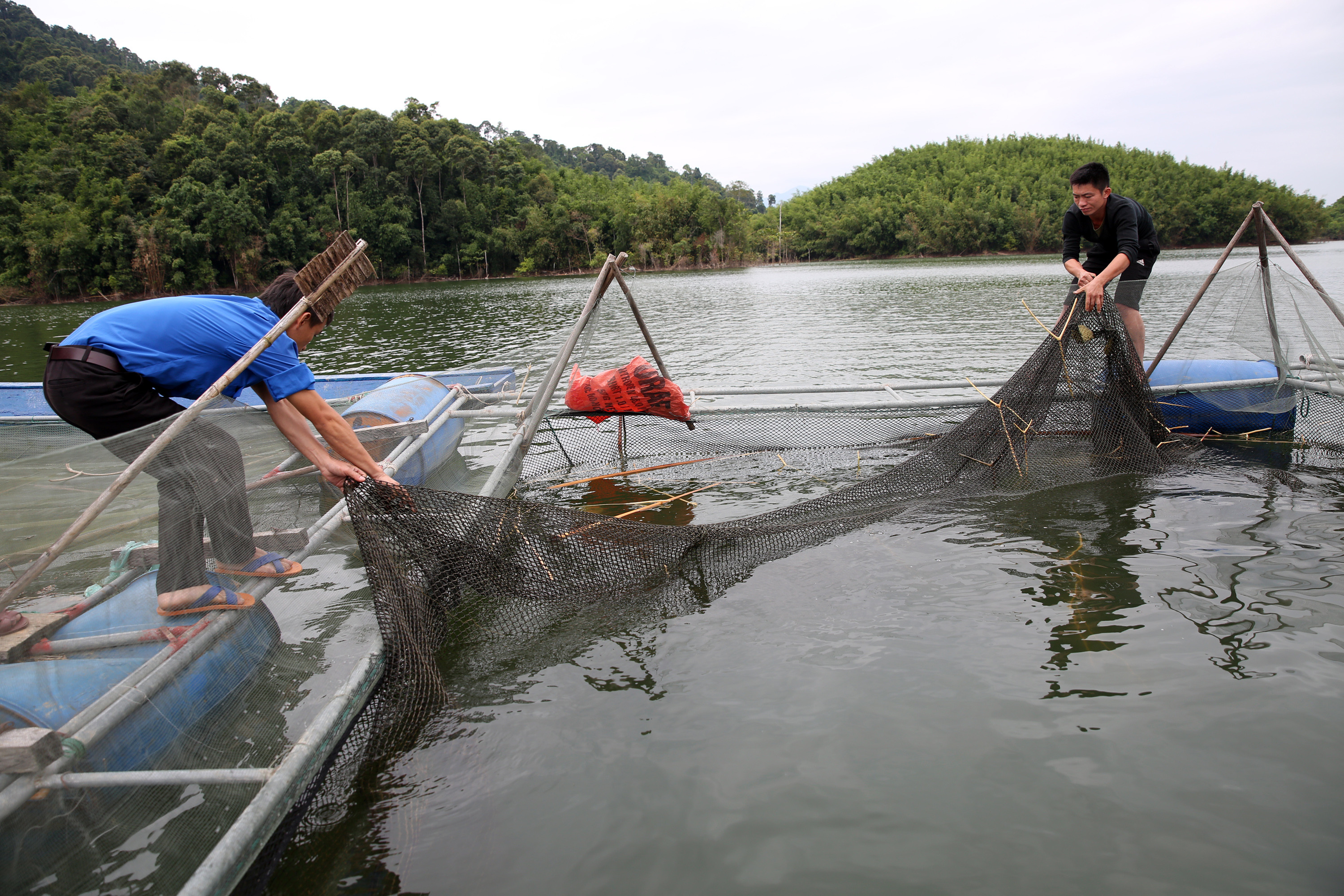 |
| Fishing and bamboo cutting are the livelihoods of Lang Van Mao and those living on the islands in the middle of the lake. Photo: Ho Phuong |
Currently, the Thai man lives mainly by fishing and exploiting bamboo. Mao has about 3 hectares of bamboo that he fences off, protects, and divides into 3 small plots, each year only exploiting 1 plot. With this method, the bamboo will not be exhausted, every 2 years, when the bamboo trees are old, he will return to the divided plot to exploit.
According to Mao, he earns 300,000 - 500,000 VND per day from selling bamboo. Mao's family also earns about the same amount from selling fish.
Promise of tomorrow
Here, we had the opportunity to meet another “Robinson”, Phan Van Bay, born in 1990 from Hanh Tien village, Chau Tien commune (Quy Chau). Bay came to Hua Na lake village just over a month ago, he invested over 100 million VND to go to Hanoi to buy purebred wild boars, buy a boat as a means of transportation and fishing. Then he cleared the land himself, built a hut to set up a farm.
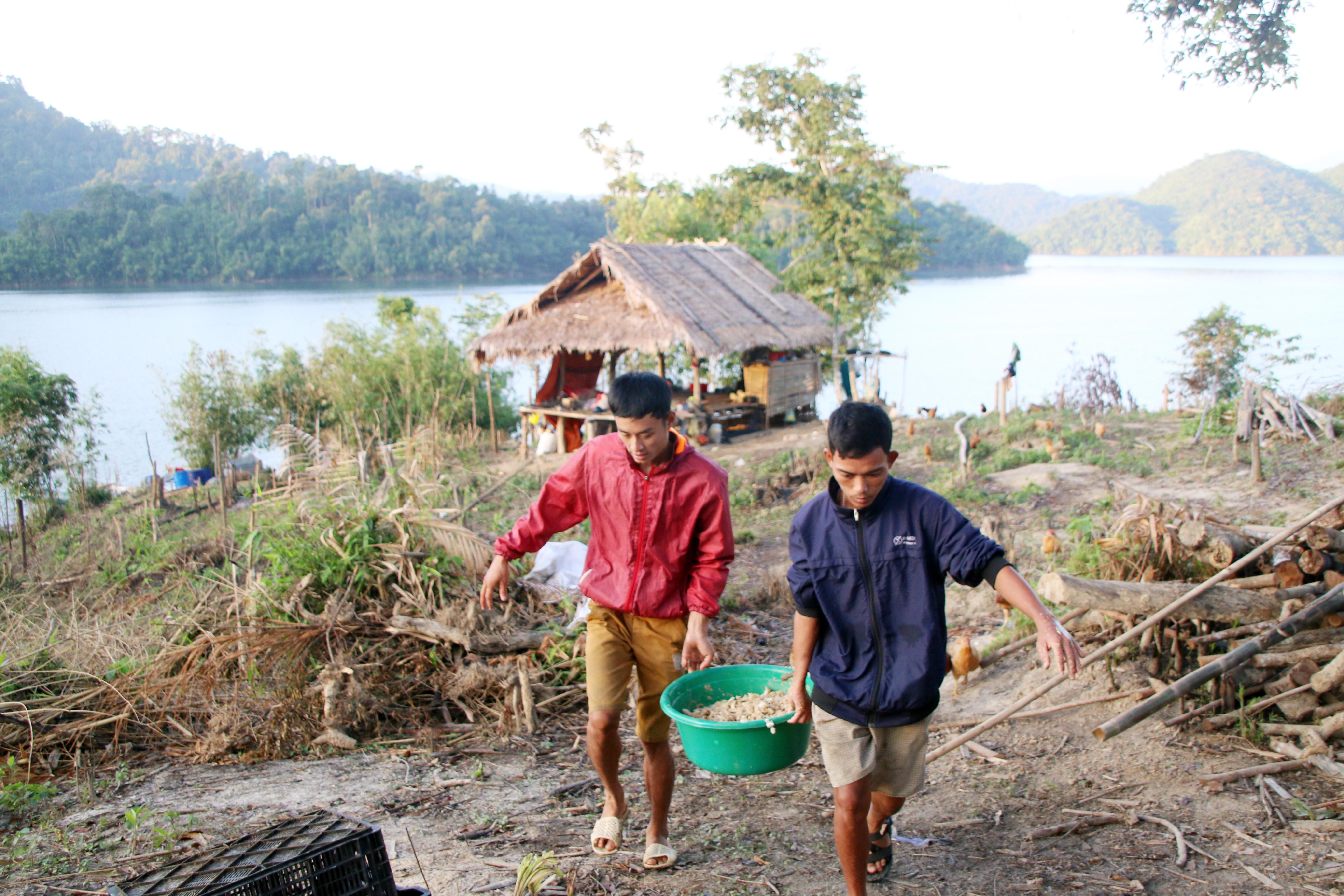 |
| For nearly a month now, Phan Van Bay (red shirt) has also come to a deserted island to open a farm. Photo: Huu Vi |
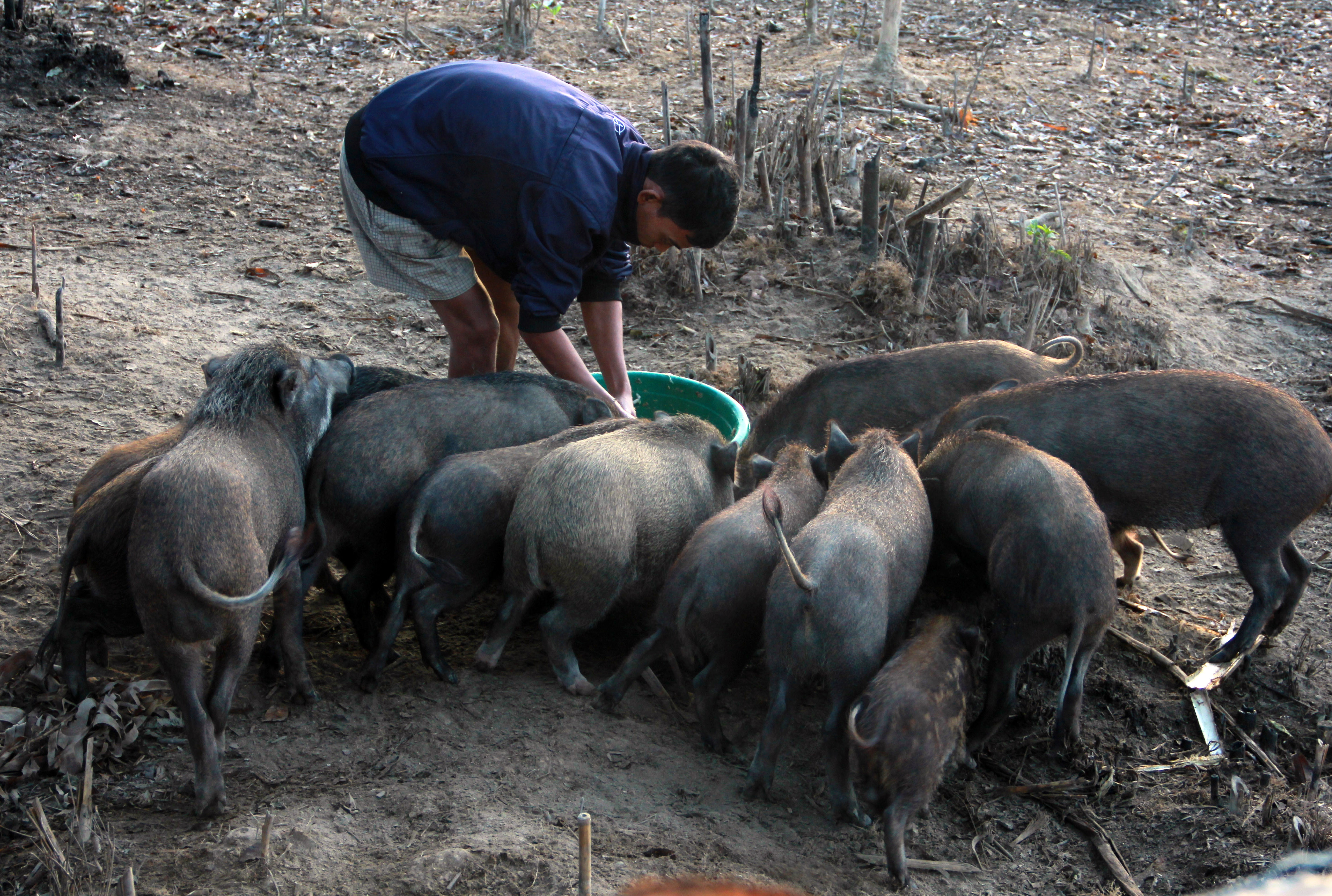 |
| Purebred wild boar is Mr. Bay's main livestock. Photo: Xuan Thuy |
After an afternoon of wandering around the lake, Phan Van Bay invited us to visit his island, less than 10 minutes by motorboat from Lang Van Mao's island. The place where Bay and his three servants live is an empty hut surrounded by a wire mesh, only the kitchen has a fence.
The source of electricity for lighting was a car battery. Now that they were in the process of building their "business", everyone was working hard. From clearing trees, clearing land, to building barns, everyone seemed to forget the time. The small battery-powered radio was the only way to get information from the outside.
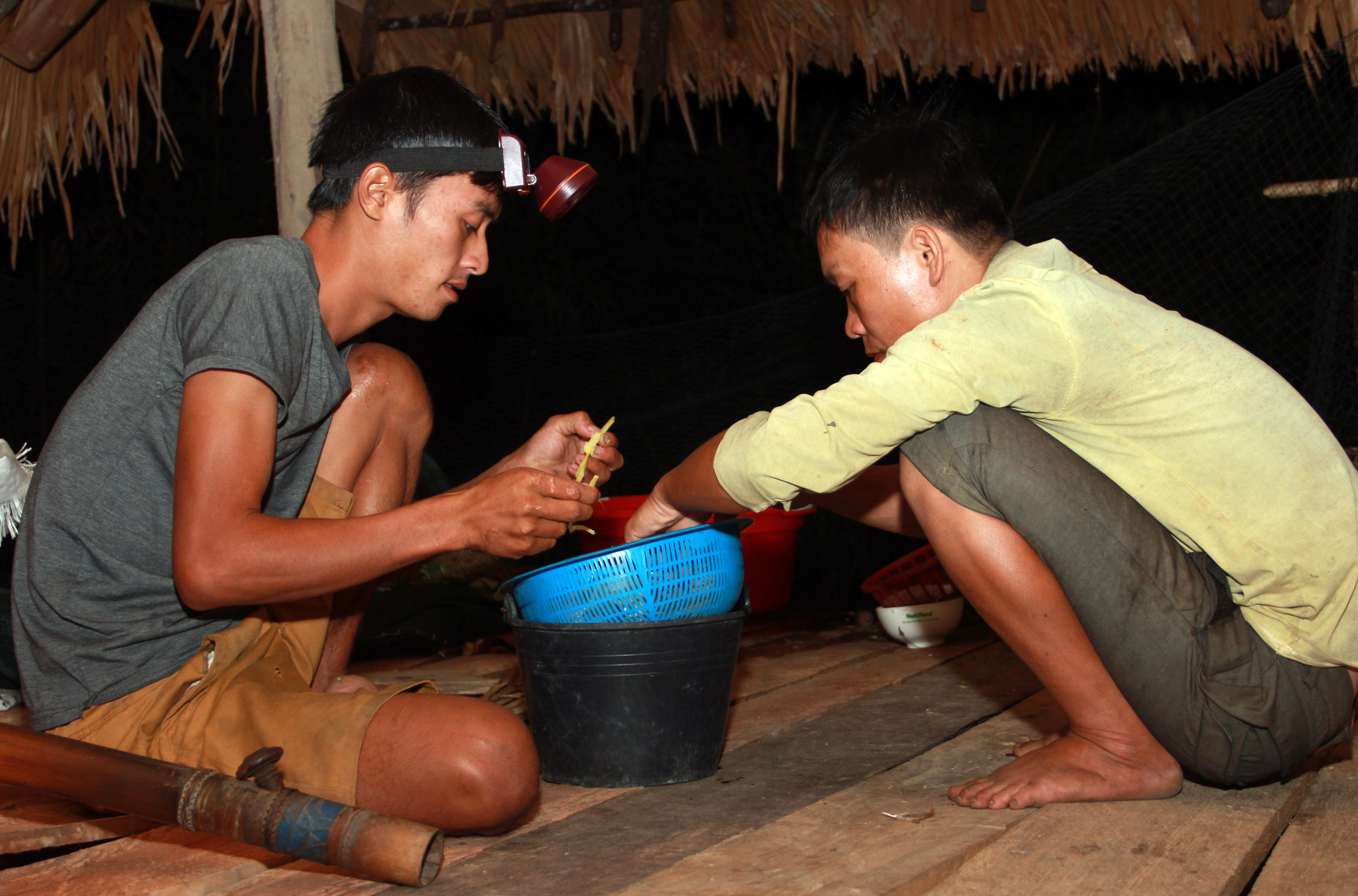 |
| Two "Robinson" guys prepare dinner. Photo: Ho Phuong |
It is expected that by mid-2019, Bay’s farm will start generating income. In addition to wild boars, Bay will also raise chickens and goats. He plans to plant corn along the banks during the dry season to serve the livestock.
We spent another night in the jungle on our way to work. But this was the first time we experienced a night on a deserted island in the middle of a hydroelectric lake. In the almost absolute quiet space, sleep came gently, the warm blankets helped us not to worry about the early winter cold.
Waking up, we suddenly thought about young people like Lang Van Mao and Phan Van Bay - people who found meaning in life in this floating river and lake. Here, for young people who dare to think and dare to do, finding a bright future on a deserted island can be considered within reach.

